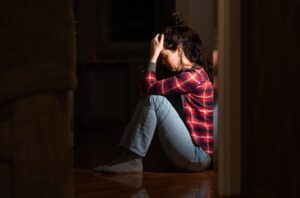Our Physical Health is Linked to Emotions
Emotional Root of Lifestyle Diseases has become a critical topic of discussion in the healing community, where the mental and emotional causes of diseases are studied and understood in depth. We often hear news of young, fit, teetotaler individuals in their late 30s collapsing during morning runs or succumbing to sudden heart attacks. You’ve likely heard phrases like “stress is a silent killer” or “mind over matter” — and these are not just catchy sayings. Our emotional health, feelings, and thoughts can profoundly impact our physical bodies in ways that modern science is only beginning to comprehend.
stress and lifestyle disorders -The Silent Killer!
 It is a favorite topic in large corporates and medical fraternity to blame everything on Stress. Be it hypertension, diabetes, stomach ulcers, acidity or any ‘lifestyle disease’, Stress is blamed for them. While prolonged stress is harmful, is it really the cause of all of these? Or is there more to it than meets the eye? Are stress and lifestyle disorders somehow connected? If you read Louise Hay’s Books especially ‘Ýou can heal your life‘, She has given a large list of diseases, both common and uncommon with their underlying emotions. You can read the gist of them here.
It is a favorite topic in large corporates and medical fraternity to blame everything on Stress. Be it hypertension, diabetes, stomach ulcers, acidity or any ‘lifestyle disease’, Stress is blamed for them. While prolonged stress is harmful, is it really the cause of all of these? Or is there more to it than meets the eye? Are stress and lifestyle disorders somehow connected? If you read Louise Hay’s Books especially ‘Ýou can heal your life‘, She has given a large list of diseases, both common and uncommon with their underlying emotions. You can read the gist of them here.
The Heart-Mind Connection
The human body has reach beyond the physical body. The aura can also be divided into layers – and it changes immediately with emotions. Ask any clairvoyant and they might tell you what is your state! The disease first manifests at your aura or emotional layer and manifests much later into your physical body. That, is the secret to a healthy, long life – remaining happy!
Letting Go of Baggage AKA Emotional Root of Lifestyle Diseases
Holding onto negative emotions has a huge impact on your emotional health. It is like carrying around a heavy backpack full of rocks. It weighs you down. Over a period, those emotions can contribute to things like back pain, organ trouble (diabetes or thyroid issues) or stomach troubles like ulcers and IBS. It’s like your body is saying, “I need some relief from all this emotional baggage and emotional causes of chronic illness!” Forgiveness is a potent cure for many of these issues though.
Laughter: The Best Medicine
Go to a park early in the morning and chances are that there are a group of people laughing out loudly. Laughter is like a super medicine for many of the emotional and mental issues. When you laugh, it sends happy signals to your body, and it loves it. Laughter is like a mini-vacation for your emotions and your health.
Taking Charge of Your Emotional Health
So, what can you do to keep your emotions and your body on good terms? How can you go about healing lifestyle diseases emotionally? Well, here are a few tips:
- Express Yourself: Find healthy ways to express your emotions, whether it’s talking to a friend, writing in a journal, or even dancing it out.
- Practice Mindfulness: Take a moment each day to breathe deeply and be present. It’s like giving your mind and body a little vacation.
- Seek Support: If you’re feeling overwhelmed, it’s okay to ask for help. Talking to a friend, family member, or a professional can make a world of difference.
Remember, your emotions are like the captain steering the ship of your health. Treat them kindly, and your body will thank you. The Emotional Root of Lifestyle Diseases needs to be addressed. It’s all part of the beautiful dance between your mind and your body – a dance that deserves to be in harmony.
Recommended Reading 📚
If you’d like to dive deeper into understanding the Emotional Root of Lifestyle Diseases, here are some highly recommended books that align with what we explored in this post:
The Body Keeps the Score — Bessel van der Kolk
When the Body Says No: The Cost of Hidden Stress — Gabor Maté
Healing Back Pain: The Mind-Body Connection — John E. Sarno
You Can Heal Your Life — Louise Hay
As an Amazon Associate, we may earn a small commission from qualifying purchases — at no extra cost to you. Thank you for supporting Soulvyom’s mission of holistic healing.